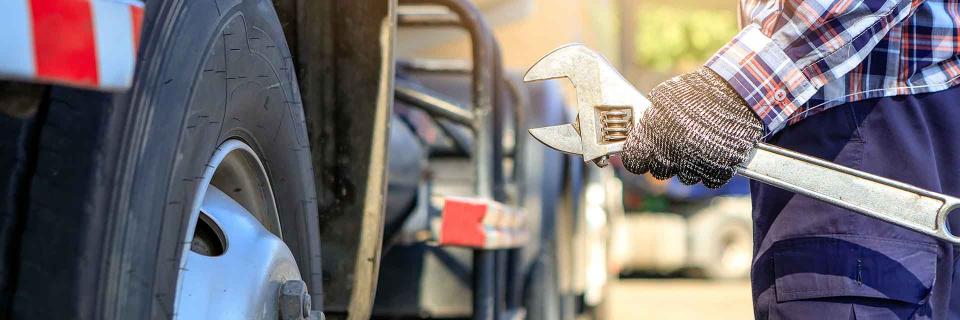
The transportation industry is seeing an unprecedented shortage in drivers, trucks and truck maintenance parts all stemming from pandemic-related closures, delays, raw material shortages and staffing issues. These shortages are causing severe delays and high prices in the truck-buying market, both new and used, which makes the decision to repair or replace your truck even more important. If you’re wondering whether you should continue to make repairs to your aging truck, or upgrade to a newer or better one, there are a lot of things to consider before you make your final decision.
Should I repair my semi-truck or buy a new one?
If you’re starting with this question, there are a few additional questions you’ll need to ask yourself:
- How much can you afford to spend on your truck each month? The cost of leasing a new truck can range from $1,600-$2,500 per month, owning a new truck can range from $2,000-$3,000, and owning a used truck can range from $800-$1,600.
- How much is your current truck costing you, per mile?
- Do you have the cash flow or financing available to upgrade your truck?
- How long will you be in the industry? Is it worth upgrading right now?
- Would it make more sense for you, financially, to work for a fleet that provides equipment?
What to Consider if You are Repairing Your Semi-Truck
If you’re interested in keeping your current truck and just repairing as needed, you should first calculate how much your truck is costing you, per mile. If it is costing you more than 13-14 cents per mile, you’re likely spending too much; new trucks can cost as little as 5 cents per mile.
You should also consider any other big repairs you may have coming in the next several weeks, months and years. Will you need an engine rebuild, new brakes, updated emissions equipment, etc.? These costs can add up quickly, making it more beneficial to consider buying a newer truck. Additionally, if these maintenance issues are keeping you from delivering on your deadlines, or creating safety problems for you or others, it might make more sense to upgrade.
Lastly, outsourcing labor-intensive repairs can cost a lot of time and money that you may not be prepared for. If you know how to do most of your repairs and maintenance work yourself, you can save a lot of money on labor costs, which means you could justify repairing your current truck for a longer time. You can always join a maintenance savings program, like the partnership between RTS and Southern Tire Mart, to get discounts on repairs you might need.
NOTE: Always prioritize safety and inspection requirements when considering whether to make repairs yourself versus outsourcing to experts.
What to Consider if You are Buying a New Semi-Truck
The decision to buy (or lease) a new truck is never an easy one; there are a lot of components that go into purchasing and/or financing a new vehicle, especially with many OEMs on a 14-month lead time due to pandemic-related delays. As you begin your search, ask yourself the following:
- Is the dealer you’re working with reputable?
- What kind of warranty is included with your purchase? Do they offer an extended warranty?
- Would buying the truck outright, financing or leasing be the best option for you?
- If financing, what are your financing options?
What to Consider if You are Buying a Used Semi-Truck
Used trucks provide an opportunity to upgrade from your current tractor without the financial burden of purchasing a new one. However, used truck rates have skyrocketed due to current truck shortages so you want to ensure you’re making a smart decision by considering the following:
- Has the truck been well-maintained? Is there a record of the maintenance?
- How often was the oil changed?
- Will anything major need replaced soon? (If it’s over 700,000 miles, you should prepare for an engine rebuild).
- What is the tire tread depth? Will you need to purchase new tires?
- Is the dealer reputable, and do they offer a warranty?
- Does the truck meet the specs you need for the type of loads you typically haul?
- Does it meet regulations you need to comply with, such as emissions or noise regulations?
- Are there any fleets upgrading to newer models that you could purchase from?
- Are you paying in cash, or will you need to secure financing?